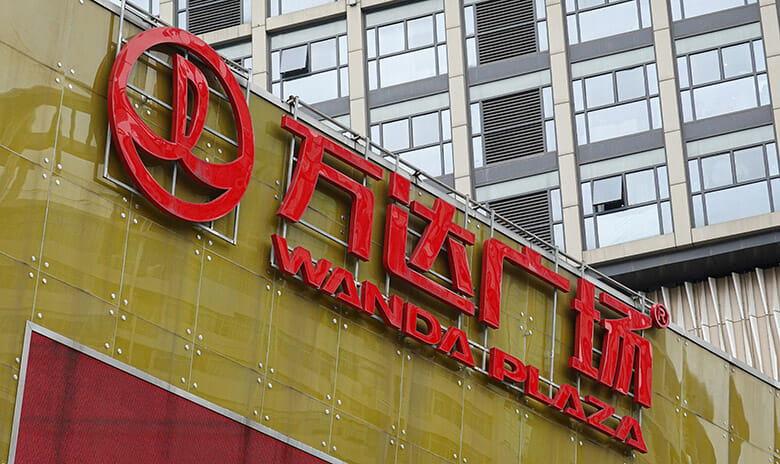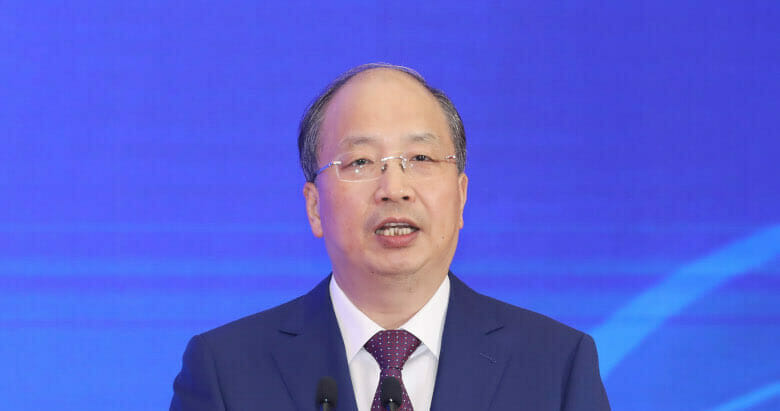
The revised REIT policy could provide opportunities for developers like Dalian Wanda Group (Getty Images)
China has expanded its pilot program for publicly traded real estate investment trusts (REITs) to include shopping malls and other retail properties, as authorities continue to expand access to liquidity for companies in the property sector.
With the country’s public REIT regime approaching its second birthday, the China Securities Regulatory Commission on Friday published new rules allowing for real estate investment trusts listed on mainland stock exchanges to include “consumer-related infrastructure projects,” such as department stores, shopping centres, farmer’s markets and other retail properties.
The CSRC explained its move to allow investors to list portfolios of retail properties directly on the Shanghai and Shenzhen bourses as, “giving full play to the basic role of consumption, prioritizing the recovery and expansion of consumption, and researching and supporting the enhancement of consumption capacity, improvement of consumption conditions, and innovation of consumption scenarios,” in line with decisions made at the government’s Central Economic Work Conference in December.
Analysts see the measure providing a new channel for developers and investors to monetise commercial properties in China, with REITs previously only allowed to list industrial or affordable housing properties.
Developer Exit Opportunity
“It opens another door for developers to get cash from their assets. The greater flexibility in securitizing malls is helpful, but it also depends on how big the size will be,” Gary Ng, economist for Asia Pacific at Natixis, told Mingtiandi. He added that, “There will be some deals from cash-strapped developers and investors will welcome the development if there are good opportunities.”

CSRC Chairman Yi Huiman
Malls in prime locations typically generate steady income, Ng pointed out, while cautioning that allowing retail REITs on its own will not be likely to brighten sentiment regarding the country’s depressed property market.
With most of China’s residential developers struggling through a debt crisis, the CSRC warned that the mall REITs should not be used as a funding source for housing projects. The CSRC document noted that the revised REIT regulations are aligned with directives from China’s top policy body, the National Development and Reform Commission to accelerate the adoption of listed real estate trusts without specifying a timeframe for the latest rule changes to be implemented.
The notice by the Chinese market regulator also highlighted that mall REIT sponsors should be independent legal entities holding infrastructure assets serving consumer needs and engaged in related businesses, and should not be engaged in developing commercial housing.
REIT Regime Matures
The expansion of China’s REIT regime to include portfolios of retail properties comes just less than two years after the country’s first batch of nine publicly traded REITs were floated on the Shanghai and Shenzhen stock exchanges in June 2021. Those first C-REITs, which allowed for listing of warehouses as infrastructure assets and included a trust jointly sponsored by GLP and China’s CICC investment bank, raised a combined RMB 5.8 billion through their initial public offerings.
Then in August last year the country’s first three affordable housing REITs made their stock exchange debuts, to support the government’s goal of funneling more capital into low cost residential development.
The CSRC said the latest policy change aims not just to promote the country’s REIT market but also to further improve its function.
“With the joint efforts of all parties, a preliminary exploration has opened up a REIT development path that not only follows the laws of mature markets, but also adapts to China’s national conditions,” the regulator said, noting the role that the REIT market plays in revitalizing stock assets, widening investment opportunities and helping property developers to lower their debt levels through asset sales.
More Than 25 REITs Listed
In announcing the new REIT rules, the CSRC noted that there are now 25 real estate investment trusts listed on mainland exchanges, which had raised more than RMB 80 billion ($11.62 billion) as of end-February.
Last month saw the debut of Harvest & JD Storage Logistics REIT on the Shanghai stock exchange, which gives investors an opportunity to buy into a set of three warehouses operated by units of e-commerce giant JD.com, with that IPO having generated RMB 1.76 billion ($260 million) in its roll-out.
Hong Kong-listed logistics giant ESR is also preparing to list a C-REIT, after the company announced last month that Chinese regulators had greenlighted its plan to list a portfolio which includes the first three phases of its Kunshan Huaqiao Park complex in eastern China’s Jiangsu province.
Leave a Reply